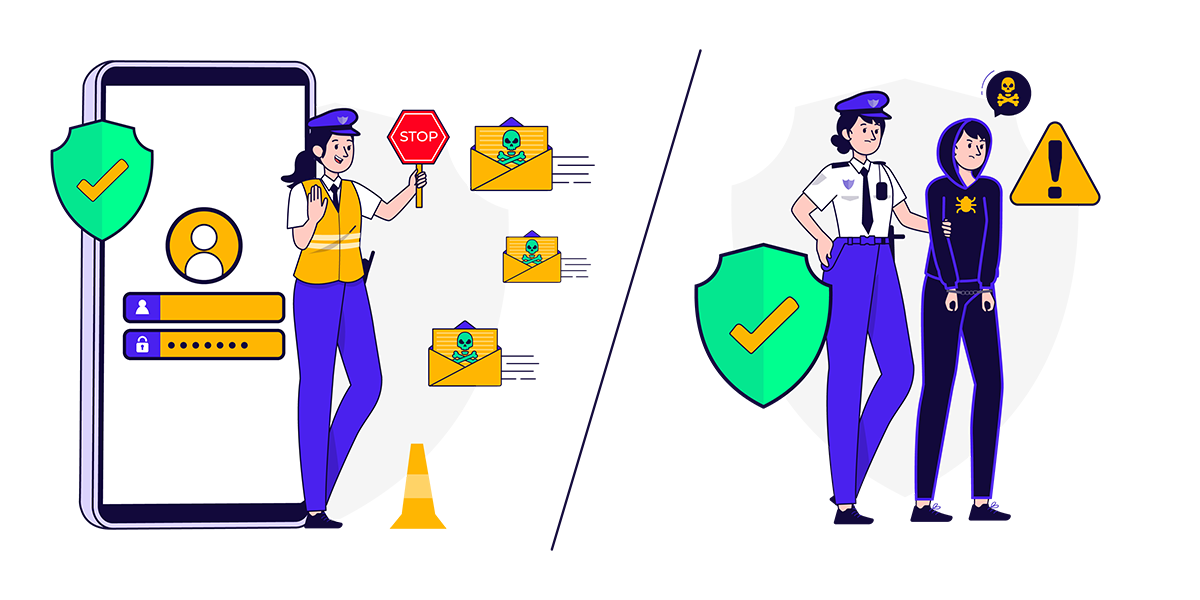Today's reality is we have the entire world in the palm of our hand and…

Virtual Private Networks: Digital privacy protection (but not your only defence)
Checking your bank account in a café or sending a quick work email from the airport all seems harmless. Yet in these everyday moments, your sensitive data could be more exposed than you think. From identity theft to convincing phishing schemes affecting thousands of Australians and cost businesses millions, cyber risks are multiplying as fast as our online presence.
In 2023 in Australia there were 94,000 reported cybercrime incidents – up 24% from the previous year. That’s about 258 Australians falling victim to cybercrime every single day. The data shows medium-sized businesses lost an average of $97,200 to cyber incidents in 2023.
And these are just the reported cases.
Virtual Private Networks (VPNs) have become a go-to for online privacy and security. While VPNs are excellent at protecting your data in transit, they’re just one layer of cyber protection needed to adequately protect your data from cybercriminals.
What is a Virtual Private Network?
When you’re having a private conversation with a friend in a crowded café, others can overhear you and listen if they want. But if you move to a private room, your conversation is protected. A VPN is that private room for your internet activity – a protected, private space for your online interactions.
How does a VPN work?
When you connect to the internet, your data travels from your device along various stops before reaching its destination (like a website). At each stop, your data can potentially be seen by hackers – location, browsing history and any information you’re sending or receiving.
When you use a VPN:
- Your data gets encrypted (scrambled) before leaving your device
- It travels through your VPN’s private network
- It exits from a different location of your choosing or automated by the VPN provider
- Only then does it head to its final destination.
For more on how encryption works, we recommend this article: Encryption Explained: Why it matters for everyday internet users.
Benefits of using a Virtual Private Network
- Your internet service provider can’t see what websites you’re visiting
- Helps protect you when using public, unsecured Wi-Fi. Remember those 94,000 cyber incidents reported in Australia in 2023? Many happened on public networks
- Makes it appear you’re browsing from a different location
- Protects all your information while it’s in transit.
When should you use a VPN?
Public Wi-Fi networks are super convenient, but they’re prime hunting grounds for cybercriminals.
Every click, search, and download contributes to your digital footprint. If you wouldn’t want someone creeping on your every move in real life, why let them do it online? A VPN is necessary for every day, not only for confidential and financial information. A VPN while travelling is highly recommended and even at home, it provides security for:
- Shopping and banking
- Accessing streaming services
- Working remotely
- Using shared internet connections
When choosing a VPN, prioritise providers that:
- Have a clear “no-logs policy
- Offer strong encryption standards
- Maintain servers in multiple countries
- Provide reliable customer support
- Have a proven track record of protecting user privacy.
VPN myths vs. reality
While VPNs your regular connection into a secure channel and we recommend everyone use one, they’re not magic invisibility cloaks.
A VPN makes me completely anonymous online.
VPNs mask your location and encrypt your data, but they can’t hide everything. Your online accounts, cookies, and digital activities can still reveal information about you.
All VPNs are the same.
Just like any service, quality varies dramatically. Some VPN providers have stronger security practices, better privacy policies, and more reliable networks than others.
Free VPNs are just as good.
More often than not, when you’re not paying for a product, you are the product. Free VPNs often sell your data – defeating the whole purpose of privacy.
VPNs significantly slow your internet.
Quality VPNs with modern infrastructure have minimal impact on speed. If you notice major slowdowns, try another provider.
What a VPN doesn’t protect you from
In 2023, Australia reported 108,636 phishing attacks – none of which a VPN could stop. Why? Because while a VPN protects how your data travels, it can’t prevent you from clicking a malicious link or shopping on a fake website and inadvertently sending information to criminal sources. A VPN also won’t stop malware or ransomware from infecting your device or protect your accounts if your login credentials are compromised.
Building an all-star digital security lineup
Just as you combine locks, alarms, and security lights and cameras, your online security needs multiple defence layers.
Along with a VPN, your cyber security should include:
- Real-time threat detection capable of detecting malicious links, sites and attachments, and alert you before you enter any personal information
- Regular software updates to patch security vulnerabilities
- Two-factor authentication for important accounts
- Password manager to create and store your unique passwords
- Automated backup for your critical data.
Using a VPN is a smart choice but they’re just one part of your security team. Understanding their strengths and limitations help ensure you are adequately protected online.


